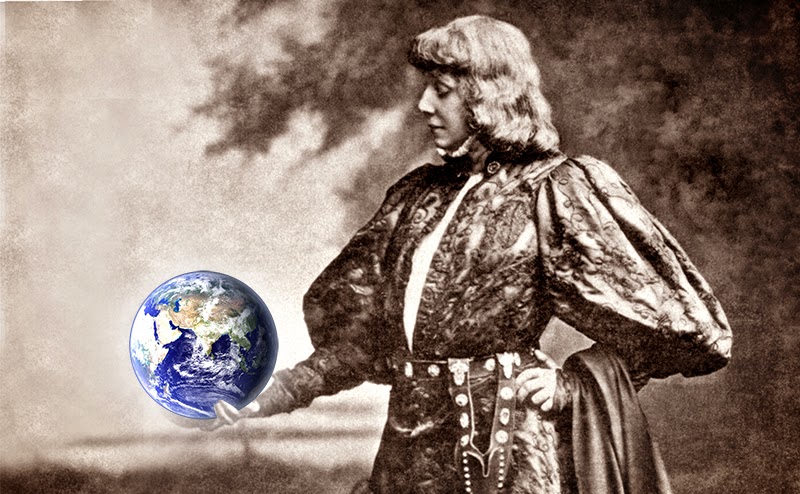 |
| Image Source: World Science Festival, Bill Blakemore |
Be not too tame neither, but let your own discretion
be your tutor: suit the action to the word, the
word to the action; with this special o'erstep not
the modesty of nature: for any thing so overdone is
from the purpose of playing, whose end, both at the
first and now, was and is, to hold, as 'twere, the
mirror up to nature; to show virtue her own feature,
scorn her own image, and the very age and body of
the time his form and pressure. Now this overdone,
or come tardy off, though it make the unskilful
laugh, cannot but make the judicious grieve; the
censure of the which one must in your allowance
o'erweigh a whole theatre of others. O, there be
players that I have seen play, and heard others
praise, and that highly, not to speak it profanely,
that, neither having the accent of Christians nor
the gait of Christian, pagan, nor man, have so
strutted and bellowed that I have thought some of
nature's journeymen had made men and not made them
well, they imitated humanity so abominably.
Hamlet, Act 3, Scene II, A hall in the castle
Again, quoting Carl Sagan: "We live in a society exquisitely dependent on science and technology, in which hardly anyone knows anything about science and technology." And sadly, as demonstrated recently in the US and the "land down under," some of the aforementioned get elected to public office.
Topics: Climate Change, Global Warming
Is Hollywood Our “Collective Unconscious”?
It has often been suggested that Hollywood, and popular arts in general, may be something like a Jungian “collective unconscious” responding to deep underlying worries of the time – to the time’s ”form and pressure”, to use Hamlet’s phrase.
In recent years, Hollywood has poured out a growing number of apocalyptic and post-apocalyptic movies, as if responding to our gathering collective anxiety about global warming and the related destruction of species and ecosystems. There’s even a new sub-category of such films, coined in 2007 by blogger Danny Bloom: “Cli-fi” is science fiction set in worlds disrupted by manmade climate change.
In 2004, The Day After Tomorrow showed us a world suddenly thrown into a severe ice age when global warming melted so much heavy fresh water from the Greenland ice sheet into the Atlantic Ocean’s Gulf Stream that its circulating current shut down and stopped carrying tropical heat to the northern latitudes as it does today. In 2014, Interstellar gave us a parched and blighted earth unable to provide food for its starving inhabitants – and the fantasy that humanity would somehow even have time to find a home on another planet, though none alive today might make it that far.
Nor do today’s actual climate scientists and world leaders, working hard on the climate crisis, give any thought to such escape. They are working with reports that global warming is already killing many (who would not die if there were no manmade climate crisis), is bearing down fast, and is already showing early signs of the sort of economic disruption which, amplified, could make the expense of any space efforts unconscionable here on our only home. The planet’s leaders tell us we’re not there yet—life still goes on fairly normally, pleasant or not, for most people, but not all—and that we’re all headed that way.
World Science Festival:
Climate Change What Will The Humans Do? (Part 3), Bill Blakemore
Related Link
MIT Technology Review:
How Much Fossil Fuel Should Be Left in the Ground? Mike Orcutt
Tomorrow: Terms of Indifference
Comments